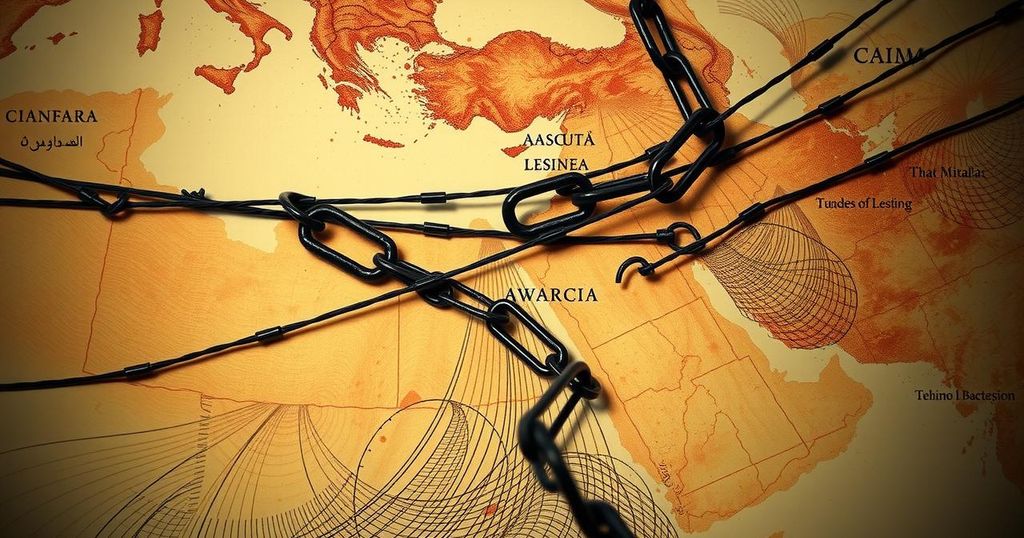The US has sanctioned Sudan’s army leader Burhan for attacks on civilians as conflict with the RSF escalates. Accusations of genocide by the RSF have been supported by human rights groups. The UAE’s involvement in supplying weapons complicates the geopolitical landscape, leading to Sudanese officials condemning the US actions as misguided and retaliatory.
The United States has imposed sanctions on Sudan’s army chief, Abdel Fattah al-Burhan, citing grave accusations of attacks against civilians, including assaults on schools and hospitals. These sanctions coincide with prior measures against his rival, Mohamed Hamdan Dagalo (Hemeti), leader of the Rapid Support Forces (RSF), amid a declared genocide by the RSF in Sudan. The conflict between these factions has resulted in an unprecedented humanitarian crisis.
Burhan and the RSF have been engaged in violent conflict since April 2023, leading to widespread devastation and casualties among civilians. Reports have emerged suggesting the use of chemical weapons by the Sudanese army against the RSF on multiple occasions, intensifying the outcry and calls for accountability from human rights organizations and foreign governments. The involvement of the United Arab Emirates (UAE) as a supplier of arms to the RSF has further complicated the situation, leading to heightened scrutiny of US foreign policy.
The US sanctions against Burhan have sparked criticisms aimed at both the US and the UAE, with Sudanese officials arguing that the sanctions mischaracterize the dynamics of the conflict. Critics assert that while both factions are culpable, equating their responsibilities undermines a clearer understanding of the situation. Furthermore, the allegations of chemical weapons use raise serious ethical and legal questions regarding international intervention and accountability in Sudan.
Original Source: www.middleeasteye.net






